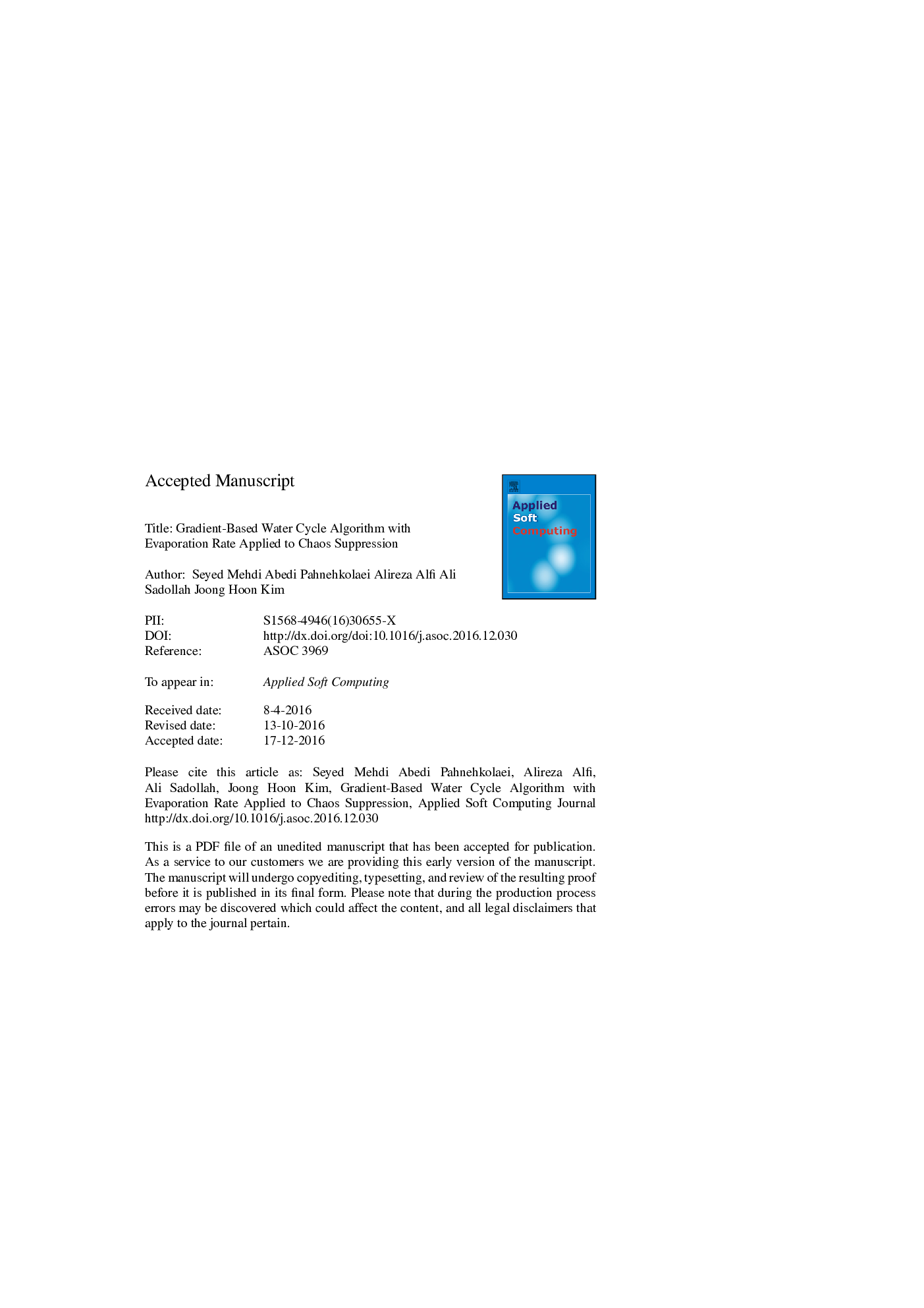| کد مقاله | کد نشریه | سال انتشار | مقاله انگلیسی | نسخه تمام متن |
|---|---|---|---|---|
| 4963243 | 1447007 | 2017 | 48 صفحه PDF | دانلود رایگان |
عنوان انگلیسی مقاله ISI
Gradient-based Water Cycle Algorithm with evaporation rate applied to chaos suppression
ترجمه فارسی عنوان
الگوریتم چرخه آب مبتنی بر گرادینت با سرعت تبخیر که به سرکوب هرج و مرج اعمال می شود
دانلود مقاله + سفارش ترجمه
دانلود مقاله ISI انگلیسی
رایگان برای ایرانیان
کلمات کلیدی
موضوعات مرتبط
مهندسی و علوم پایه
مهندسی کامپیوتر
نرم افزارهای علوم کامپیوتر
چکیده انگلیسی
Water Cycle Algorithm (WCA) is a nature-inspired population-based metaheuristic algorithm, which has been successfully applied to solve a wide range of benchmarks and real-world optimization problems. In this paper, an extended version of WCA, namely Gradient-based Water Cycle Algorithm (GWCA) with evaporation rate, is introduced to enhance the performance of the standard WCA by incorporating a local optimization operator so-called gradient-based approach. The idea of GWCA is underlined using the concept of moving (flowing) individuals along the steepest direction slope under a certain criterion. In order to demonstrate parameters influence on the performance of GWCA, an extensive sensitivity analysis is also carried out. To verify the performance of the GWCA, twelve well-known benchmark functions are adopted from the literature in the experiments. Both value-based and ranked-based methods are conducted to compare the performance of reported algorithms on the whole test suite. To this reason, the mean best and standard deviation of the results are provided and the Friedman test is utilized to determine average ranking of the algorithms based on their performances in each experiment. Corresponding results indicate that the proposed GWCA has outstanding performance in comparison with some state-of-art optimization algorithms. Finally, the chaos suppression problem using backstepping control as a real case study was adopted to confirm the efficiency of GWCA. The experimental results demonstrate the feasibility and efficiency of the proposed GWCA.
ناشر
Database: Elsevier - ScienceDirect (ساینس دایرکت)
Journal: Applied Soft Computing - Volume 53, April 2017, Pages 420-440
Journal: Applied Soft Computing - Volume 53, April 2017, Pages 420-440
نویسندگان
Seyed Mehdi Abedi Pahnehkolaei, Alireza Alfi, Ali Sadollah, Joong Hoon Kim,
